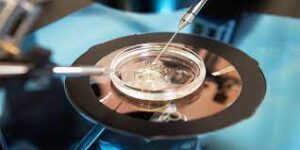In Kenya, a quiet revolution is taking place in the realm of reproductive health. For many, parenthood remains an elusive dream due to infertility, a challenge that affects couples both emotionally and physically. The Assisted Reproductive Technology (ART) Bill 2022 aims to address this issue by providing a legal framework for ART procedures in Kenya. This legislation, championed by Suba North MP Millie Odhiambo, comes at a time when many Kenyans are still unaware of the possibilities ART offers.
The Global Perspective on Infertility
Infertility is a global health issue with profound impacts on individuals and societies. According to the World Health Organization (WHO), clinical infertility is defined as the inability to conceive after one year of regular, unprotected sexual intercourse. WHO estimates suggest that 10-15% of couples worldwide experience infertility. The emotional toll of infertility is universal, transcending borders and cultures.
The Role of ART in Overcoming Infertility
Assisted Reproductive Technology (ART) encompasses various medical procedures aimed at helping couples achieve pregnancy when natural conception is not feasible. These methods include Intrauterine Insemination (IUI) and In Vitro Fertilization (IVF). While ART is not a guaranteed solution, it has provided hope to countless individuals who might otherwise have been denied the chance to become parents.

The Assisted Reproductive Technology Bill 2022
The Assisted Reproductive Technology Bill 2022, spearheaded by Hon. Millie Odhiambo, Member of Parliament for Suba North, is a significant step forward in addressing infertility in Kenya. According to the bill, a person qualifies for ART if it is certified by a medical doctor and cannot use that procedure for any purpose other than human procreation.
Kenya’s Infertility Challenge and the ART Bill
In Kenya, infertility is a pressing issue that often remains hidden. The concept of ART is relatively new, and many people are unaware of its existence or may perceive it as unaffordable. Infertility is not merely a medical concern; it has profound emotional and psychological implications. The ART Bill seeks to provide a legal framework for these treatments, ensuring they are safe, ethical, and accessible.

Breaking the Silence and Building Awareness
Efforts are being made to break the silence surrounding infertility and ART in Kenya. Advocates, healthcare professionals, and organizations are working tirelessly to raise awareness about fertility issues and the available treatment options. Initiatives aimed at educating the public, addressing stigmatization, and providing support to those affected by infertility are gaining momentum.
Overcoming the Cost Barrier
High costs remain a significant barrier for individuals considering ART. In Kenya, comprehensive insurance coverage for reproductive health is lacking, making these procedures financially burdensome for many. While the ART Bill’s implementation may help reduce the financial burden on those seeking fertility treatments, there is a critical need for advocacy and government support to make ART more accessible to all.
A Call to Action
As we discuss the Assisted Reproductive Technology Bill 2022 and the hope it brings to those facing infertility, it is important to recognize the need for empathy, support, and understanding within our society. Infertility affects more people than we may realize, and the journey toward parenthood can be a challenging one. The bill represents an opportunity for Kenya to embrace the promise of ART fully. By increasing awareness, advocating for affordable access, and fostering a culture of compassion, we can ensure that no one faces the battle against infertility alone.
President William Ruto’s Vision
President William Ruto of Kenya has expressed his commitment to improving the country’s health situation. He has proposed revisions to contributions to the National Health Insurance Kitty (NHIF), which could potentially lead to expanded coverage, including comprehensive reproductive health services.
Challenges in Devolved Health Systems
Health is a devolved function in Kenya, with counties responsible for healthcare provision. However, many countries cannot currently address severe infertility issues comprehensively. This highlights the need for coordinated efforts at both the national and county levels to ensure equitable access to reproductive health services, including ART.
In the quiet corners of Kenya, where dreams of parenthood are born and nurtured, the Assisted Reproductive Technology Bill 2022 offers a lifeline to those who need it most. It is a promise of hope, resilience, and the enduring human spirit. As Kenya continues to explore the potential of ART, let us also remember the importance of standing together, supporting one another, and breaking down the barriers that stand in the way of building families and fulfilling dreams.








